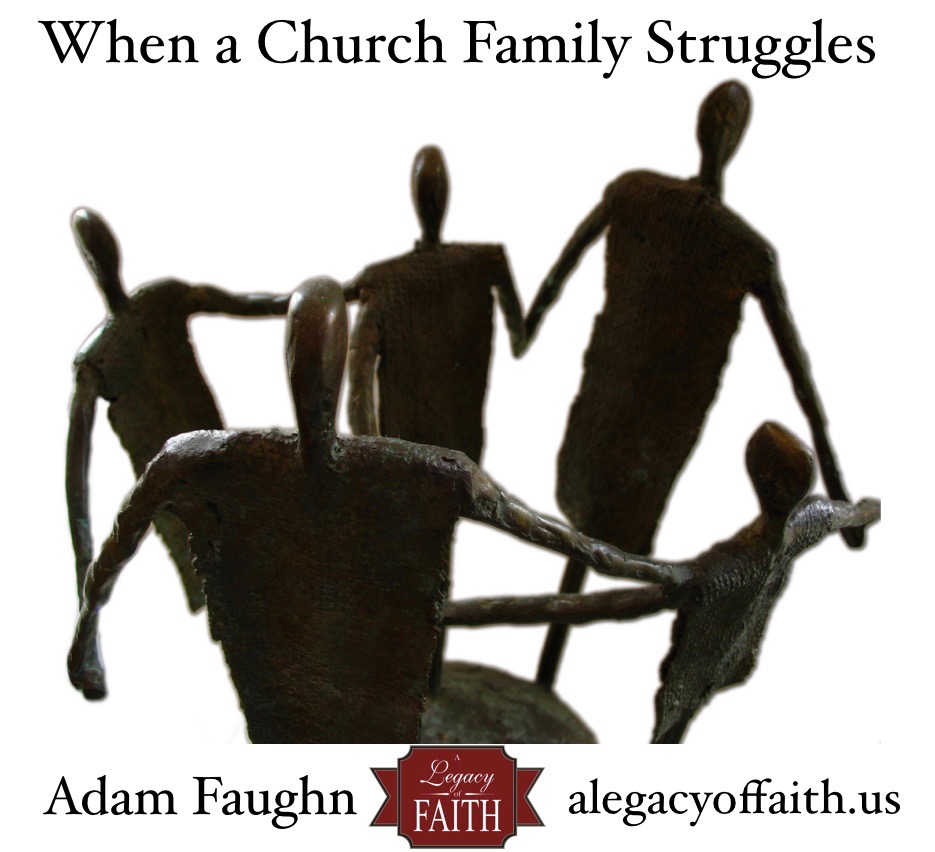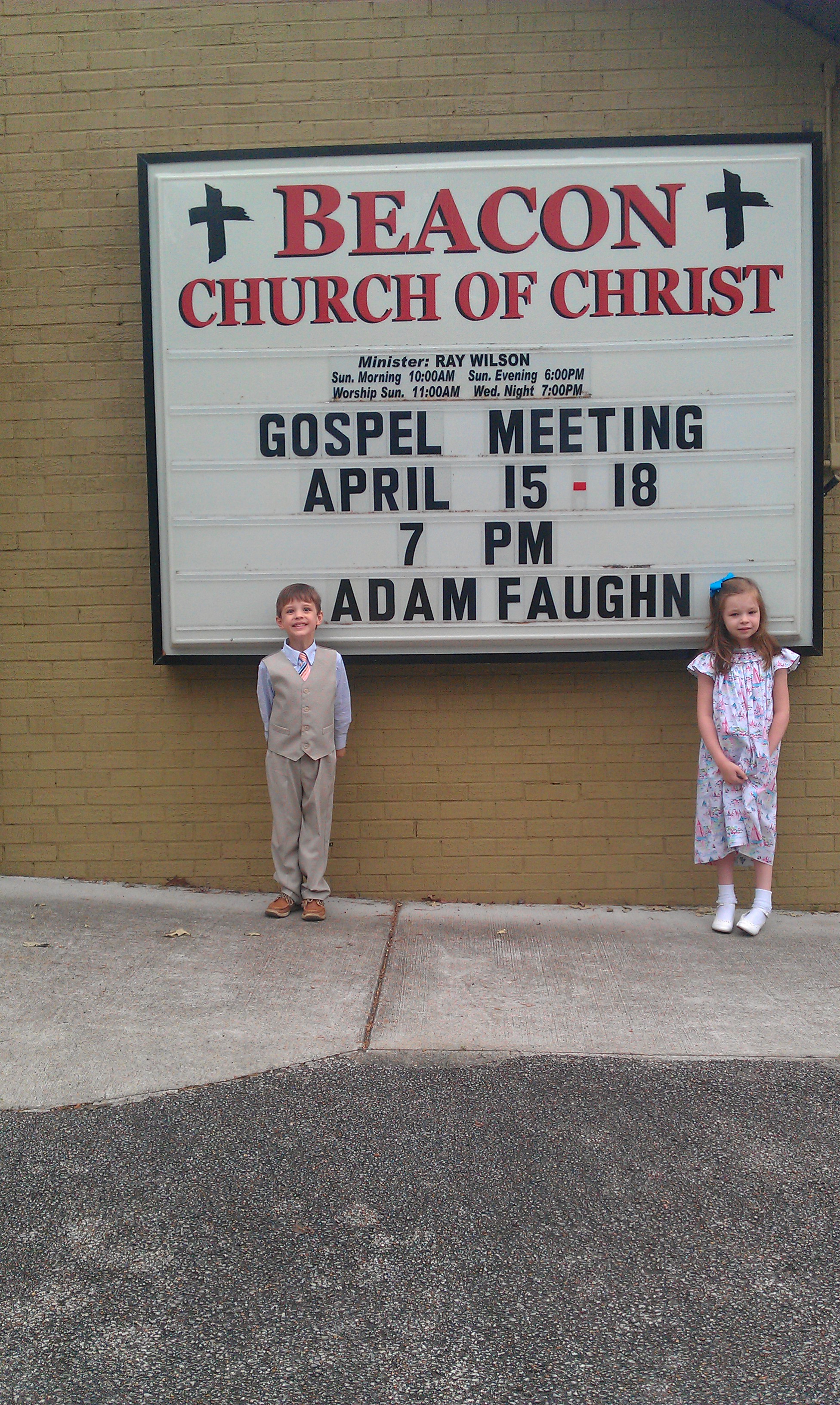When a Church Family Struggles

Of all the descriptions found in the New Testament for the church, I suppose my favorite is that of a family. That image is the one I include in sermons more often than any other, and I think it is the easiest picture to relate to on the local, congregational level.
The picture of the church as a family has many positive connotations. We think of times when we share memories. We think of laughing and crying together. We think of meals together and times when we just spend time together because we love each other deeply.
It’s Not All Positive
There is, however, another side of this image.
Families often struggle.
There is no family that is perfectly functional. We all, no matter how healthy our physical family might be, have some level of dysfunction somewhere. Obviously, there are some cases that are extreme, but every home has struggles.
And the same is true of the church. It is true of your local congregation.
No matter how vibrant and seemingly mature a congregation may happen to be, there are always struggles and squabbles that are going on. They are real. They hurt.
If we are not careful, they can also greatly tarnish the image of the church as a family.
Turning a Negative into a Positive
While there are going to be some negative times, a church that is willing to work through those struggles will come out stronger on the other side. Even in a strong physical family, there will be times of stress, arguing, and maybe even fighting (at least, to some level). It is made up of individuals who still struggle with selfishness and sin.
But when a family works through those issues in grace and love, it comes out stronger on the other side.
That is exactly what a church family must do, as well. It must work through its struggles and squabbles in grace and love, with Scripture always as the guide. When that congregation does, it comes out stronger on the other side.
Practically Speaking
What does working through these squabbles look like? Here are a few simple suggestions to help.
- “Divorce” is off-limits. In our physical family, no matter how strained our lives might get, divorce is not an option. Too many Christians, when a congregation goes through a struggle, threaten to “divorce.” They threaten to leave. It’s convenient, and (seemingly) not as painful. But it is a tactic that it hurtful and based on selfishness. Do not bring this up over simple squabbles or differences in personality.
- Tackle One Issue at a Time. In conflict resolution, there is a term for bringing up everything in one argument, even if it not related to the issue at hand. It is “kitchen sink fighting” (because you bring up everything, including the kitchen sink). When a congregation goes through a time of struggle, leaders do well to keep people focused on one issue at a time. There may be several issues, but you cannot work through them all simultaneously.
- If God has Spoken, that Settles It. I wish this went without saying, but it still needs to be said. If we are arguing over a matter of Scripture, there is nothing to argue about. At that point, we are not arguing with each other; we are arguing with God. If He has spoken, that settles the matter. My feelings or wants are subservient to the will of the Lord.
- Communication from Leaders Must be Constant, Firm, and Gracious. There is no way to overstate the importance of communication in times of trouble. In a physical family, just avoiding the issue does not make it go away. That’s also true in a congregation. Leaders need to speak clearly and boldly, but they must also maintain grace. Also, the communication from–and with–leaders needs to be constant. It should not appear to be some “edict from on high;” rather, it should be one piece of an ongoing conversation about something that is vital.
- The Church that Prays Together… Even through struggles, a congregation needs to pray. Even more, a congregation must be willing to pray specifically for struggles that are known and are threatening the unity and love of the church. While prayer should not be used to run people down, seeking God’s wisdom and guidance is never a bad thing!
Conclusion
I love that we are part of God’s family. The vast majority of the time that imagery is positive and fills our soul with joy. There are, however, times when that picture can be strained. Every family struggles, and every congregation will fuss at times, too.
The key is to work through those issues, treating each other like Philemon was to treat Onesimus, like a “beloved brother.” We are God’s family, and that means we better be willing to work together.
——————————-
To Receive Every Post via Email for Free, Click Here
AUTHOR: Adam Faughn


